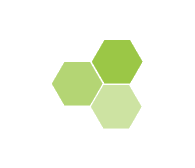Generating PDF document
Please, wait a moment

Too much time loading?
Reload the page and try again.
Please, wait a moment

Too much time loading?
Reload the page and try again.
Description
Determination of the contents of waste in the ceramic containers of the iron age, mainly from the funerary register of the Las Ruedas of Pintia necropolis, using optical microscopy, Scanning Electron Microscopy (SEM+EDX), along with Raman spectroscopy studies.Other information
Number of researchers:
5
Development status:
Developed but not marketed
Differentiation in the market:
Quality
Applicability of technology:
No
Companies and markets:
Archaeology. Tourism. Wine tourism. Cultural heritage. Restoration of cultural interest properties.
Additional Information:
Works. More than two hundred agreements and contracts signed with various public and private entities and institutions to carry out the Pintia project developed in the Pintia Archaeological site (Padilla de Duero/ Pesquera de Duero, Valladolid) between 1999 and 2015. Publications. Every year since 2008, the CEVFW (Federico Wattenberg Center for Vaccean Suties) publishes its “Vaccea anuario”, 100 pages in which the campaign of archaeological excavations from the previous year is summarized and spreads, by the diverse sections of the magazine, relevant aspects from the Vaccei and the pre-roman people of the Iberian Peninsula, vaccei cities, characteristic features of the vaccei people and news related to the CEVFW. Furthermore, two editorial lines have been launched which have published numerous books of research and spread about the research lines and work developed in the CEVFW. Nowadays there are around twenty books published. Design and installation of informative exhibitions about the vaccei culture in the MUVa (Valladolid), National Archaeological museum (Madrid), Casa de las Carnicerías in León, Silo de Cea (León), Casa del Dr. Laguna (Segovia) and 7 publications of the exhibitions “VAccearte. Arte Contemporáneo de Inspiración Vaccea” since 2007 in the museums: MUVa (University of Valladolid), Museu Guerra Junqueiro (Oporto), Dom Diogo de Sousa (Braga)Marina Douro (Oporto) Casa Junco (Uva, Palencia) Museum of Palencia, Bodegas Protos en Peñafiel (Valladolid), Bodegas Carraovejas en Peñafiel (Valladolid), Palacio Pimentel of the Diputación de Valladolid, Museo de Foz-Côa (Villanova de Foz Côa, Portugal) and Museo de Barcelos (Portugal). HD Videocamera and professional tripod techniques. Optic microscopic, Scanning Electron Microscopy (SEM+EDX), Raman spectroscopy studies. Assisted drawing programs (CAD and 3D) by computer, image processing and budgets.
UNESCO Code:
6203 - Fine arts theory, analysis and criticism
Other members:
Carmelo Prieto Colorado
Ignacio Represa Bermejo
See more
Luis Sanz Díez
Juan Francisco Pastor Vázquez
OBJECTIVESThe general purpose of the GIR in Nutrition and Food Microbiology is research, teaching, and knowledge transfer on issues related to nutrition and dietetics, clinical nutrition, food handling, food safety, and food microbiology.The general ... Read more >
Aims of the ChairThe purpose is the consolidation of a multidisciplinary group of teaching, research and scientific dissemination competent in archaeological studies in the field of archaeological heritage linked to the Pintia Archaeological Zone, by... Read more >
Archaeology for children. Hidden secrets in Pintia are waiting for you to be revealed. The ancient vaccei-roman city, destroyed many times by the fire, is now rising from the ashes to recover the memory of the people that knew how to adapt themselves... Read more >
Aims of the ChairArticle 2 of the Regulations: The following may be considered as the purposes of the Chair of European Intangible Cultural Heritage:The organization of scientific meetings, congresses, symposiums and national/international seminars r... Read more >



